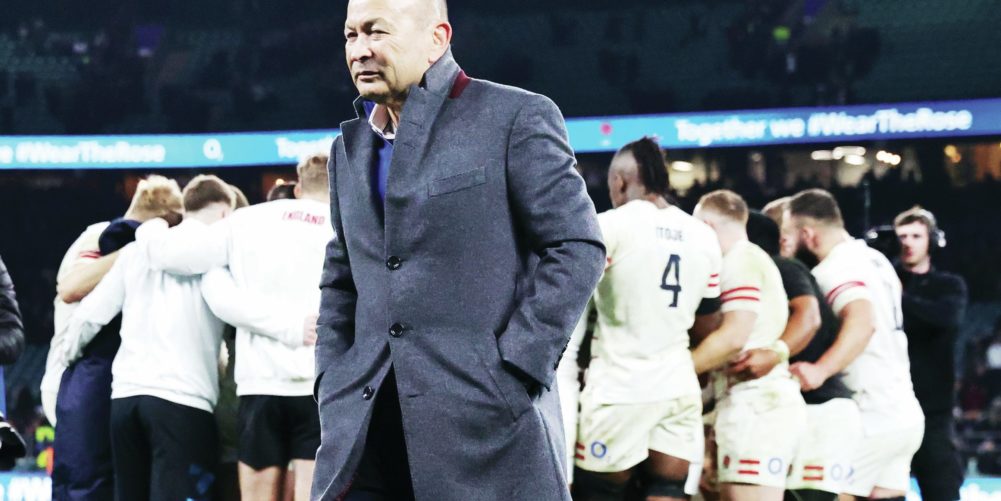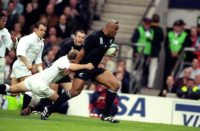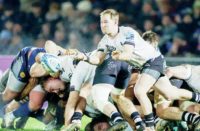A FRONT ROW VIEW OF THE GAME

AS great as the game of rugby is, it seems that there is always a need to find somebody to ‘carry the can' who in reality has nothing to do with what went wrong.
On the field, it will be one or two players who get dropped should the team lose and then if they still keep losing, the coach comes under pressure even if the players just aren't playing well enough.
As far as Eddie Jones goes, it seems he is under pressure to prove he has a plan and will in fact make the right selections when the time is right during the World Cup. There is after all, a precedent for this with a former England coach Clive Woodward, who said: “Don't judge me on the Six Nations, judge me on the World Cup.” This implied that all other competitions were of no consequence.
Admittedly, it was before his first World Cup attempt in ‘99 which ended badly, but he and the team got it right the next time.
Before this autumn's results you could have said Jones was listening to his critics by allowing what many had thought were his best combinations to have a ‘tilt' at quality opposition, but have found themselves ‘off the pace'.
This has not only given Jones food for thought, but may well have made the players more aware of the level they are yet to achieve if they want to win a World Cup. It has led to the calls for Jones to be replaced, which I think would be an unnecessary act of desperation that would create more problems than it would solve.
First, should the RFU take the decision to replace Jones, it could cost them close to £2,000,000 for his compensation, plus issuing a contract for a new coach, while also paying off a new coach's current employers.
Then, let's not forget, there is also a precedent for this with the late replacement of Andy Robinson in November 2006 which certainly didn't help the 2007 squad, nor Brian Ashton who took the job as his temporary replacement.
Any coach worth his salt would not take the England job going in so close to this World Cup without some long term guarantee as to his position.
A new coach would not have time to rebalance the squad with his own choice of players and would probably use the same players as Jones. Which is what Eddie Jones did when he replaced Stuart Lancaster who had said that the players would improve after a run of injuries and poor results, but was replaced anyway and his team went on to record one of England's longest run of wins.
Now we have the spectre of CEO Bill Sweeney potentially ‘carrying the can' for those who went before him, as he was accused by DCMS select committee chair Julian Knight MP of living in an ivory tower.
This was over the failure of the RFU to alter its fit and proper persons test, even after the sport's national governing body became aware that former Worcester Warriors part owner Colin Goldring had previously been sanctioned by the Solicitors Regulation Authority.
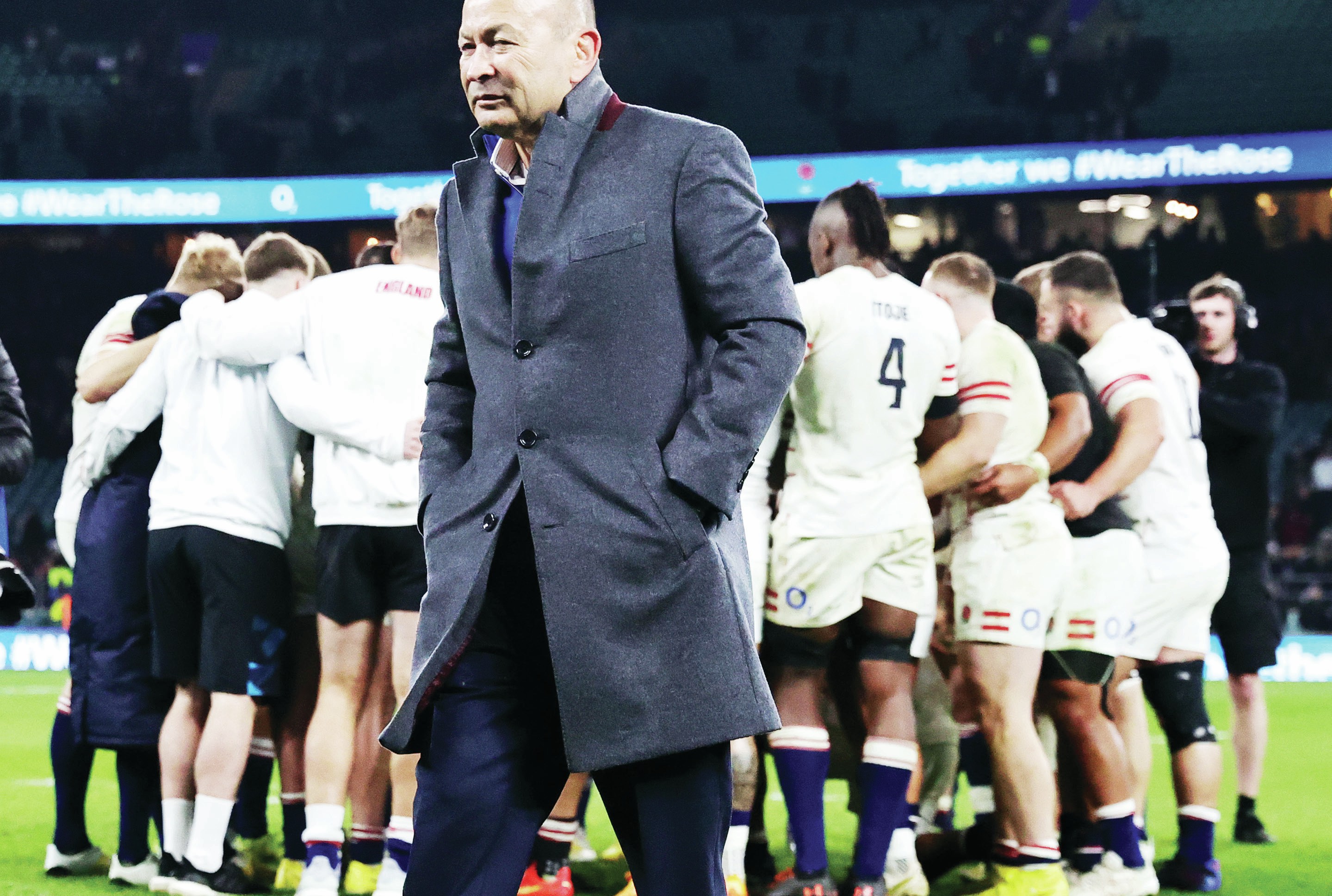
Sweeney had been in the job as CEO of the RFU for less than a month when former Worcester owner Jed McCrory left and Goldring (who was already a director) took charge with Jason Whittingham.
Having taken the position of CEO without any previous involvement with the RFU, it would have taken Sweeney months to learn and understand the relationship between the RFU and PRL, the overseeing body that controls the Premiership.
As for the situation at Wasps, many of the players say that they were aware of the financial problems years ago when the club was sold for £1.00 and only just avoided administration.
Knight and the DCMS seem to think that the RFU controls the Premiership when nothing could be further from the truth. The Premiership is virtually a self governing group of clubs that play at the top of the RFU league structure.
The RFU council which is made up from various people from other areas of the game have no control over anything the Premiership chooses to do and cannot influence the ‘business' of the Union but can only direct policy.
This leave the ‘business' of the professional game (the Premiership) in the hands of the professional staff, the PGB and some independent members.
Ultimately what has to be remembered is when the game went professional in 1995, the RFU were grateful for those that took ownership of clubs and financed the move from an amateur game to a paid professional one, virtually overnight.
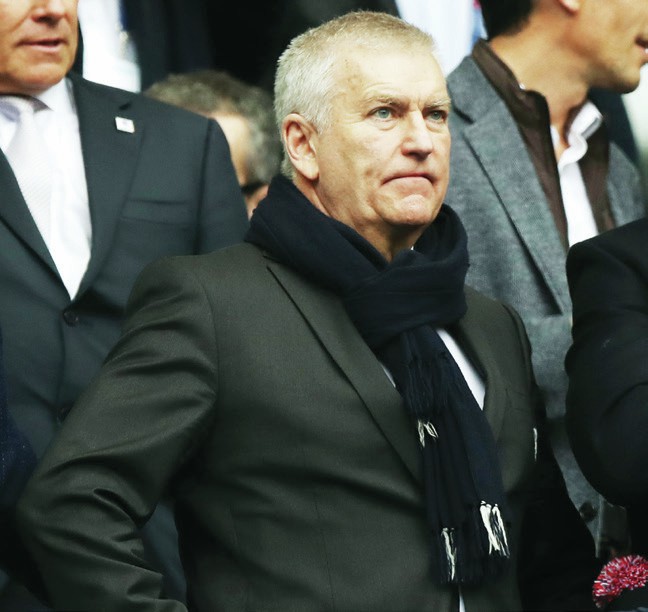
One of the reasons the RFU were grateful, as I was told by the then director of rugby, Don Rutherford, was that the Union couldn't afford to pay all the club players, but only for those who played international games.
However, once the clubs controlled the players the Union had to give a number of concessions both financial and in governance, to the PRL.
All of this happened before Sweeney's time and with what has happened since he has taken office, both Covid and lockdown, it's a miracle he has kept the RFU's head above water.

